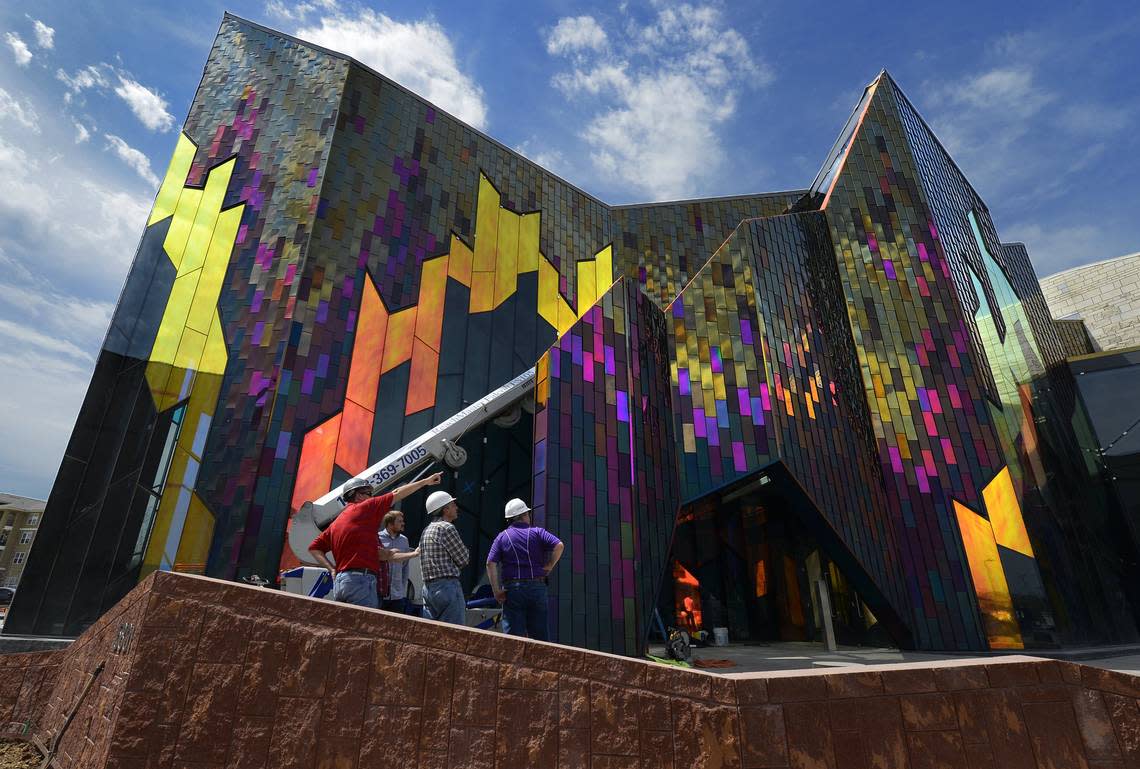Johnson County mega-development defaults on bonds from controversial KS incentive program

Reality Check is a Star series holding those in power to account and shining a light on their decisions. Have a suggestion for a future story? Email realitycheck@kcstar.com.
The sprawling Prairiefire development in southern Overland Park has defaulted on its Kansas STAR bond debt, the latest in the project’s years-long struggle to generate enough sales to meet its obligations under the controversial state tax incentive program.
Bondholders were sent a notice of default last month after Prairiefire could not pay off $15 million in debt by its maturity date, which is the first slice of $65 million in Kansas Sales Tax and Revenue, or STAR, bonds issued in 2012. The 60-acre development — a combination of restaurants, shopping and a museum at 135th Street between Lamar and Nall avenues — has had a hard time for years meeting lofty sales projections set when Overland Park and Kansas approved the state incentives.
STAR bonds are intended for projects that are unique, exceptional tourist destinations drawing visitors near and far. The program allows cities to issue bonds to pay for construction and redevelopment, which are paid back with future sales tax revenue generated on the sites.
But the state program has been criticized over the years as projects have failed to live up to expectations. And officials have said some areas, like where Prairiefire is in bustling Overland Park, would have developed on their own without the help of the tax breaks.
State law generally requires STAR bonds to be retired in 20 years. The last tranche of Prairiefire’s STAR bonds are scheduled to mature in 2032. But a 2021 audit estimated it could take until 2046, or as late as 2104, to collect enough sales tax revenue to break even.
Developer Fred Merrill Jr. told The Star in an email that business at Prairiefire is “good with record traffic during the holidays,” and that, “We are fortunate with established tenants so economy challenges have been minimal.” He said Prairiefire is now fully leased.
“The future looks bright,” Merrill said. “We have a number of tenants who have been here since the beginning 10 years ago and have extended their leases and being 100% leased is unique in the current retail market. Also, we should have some new announcements soon.”
The development is home to the Museum at Prairiefire, featuring natural history, science and art exhibitions. The site’s other attractions include an AMC Dine-In theater, shops like REI and Made in KC, and restaurants Pinstripes Bistro, Rock & Brews and Chicken ‘N Pickle. A grocery store is underway. Plans for Messenger Coffee Co. to open on the site fell through last year.
Prairiefire made $4.3 million from annual sales taxes, according to the Kansas Department of Commerce’s most recent records. That’s up from 2020, when it collected about $2.2 million in tax revenue during the pandemic.
But last month, bondholders learned Prairiefire didn’t have enough funds to pay off the $14.9 million in principal and $1.7 million in unpaid interest due, according to UMB Bank, the trustee. The bank transferred $3.8 million from its debt service reserve fund, essentially a savings account, to help pay for it.
It’s not the first time Prairiefire has tapped the debt service reserve fund, which is typically used if the project doesn’t generate enough commercial activity to make payments with its sales taxes.
To date, Prairiefire has paid only $130,000 on the principal of the $65 million bonds issued more than a decade ago, Overland Park city spokeswoman Meg Ralph said.
Overland Park did not guarantee the debt on the Prairiefire project, meaning its taxpayers aren’t on the hook. The developer also isn’t responsible for payment of the STAR bonds.
“In the event sales tax revenues generated within the Prairiefire development are insufficient to repay these bonds the City does not have an obligation to repay these bonds from other funds,” Ralph told The Star in an email. “The bonds are also not secured by any encumbrance, mortgage, security interest or other pledge of any of the property in the Project Area or any other property of the Developer.”
In the default notice, the bank said it was reviewing its options moving forward.
Also in 2012, Overland Park separately issued $14 million in community improvement district bonds for Prairiefire. That debt would be retired over time by an additional 1.5% sales tax on purchases there.
